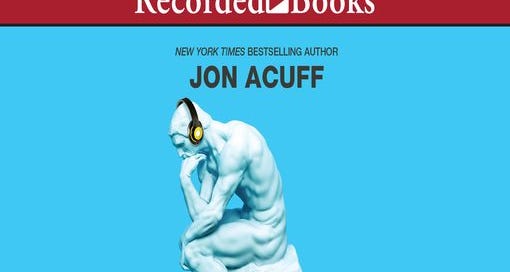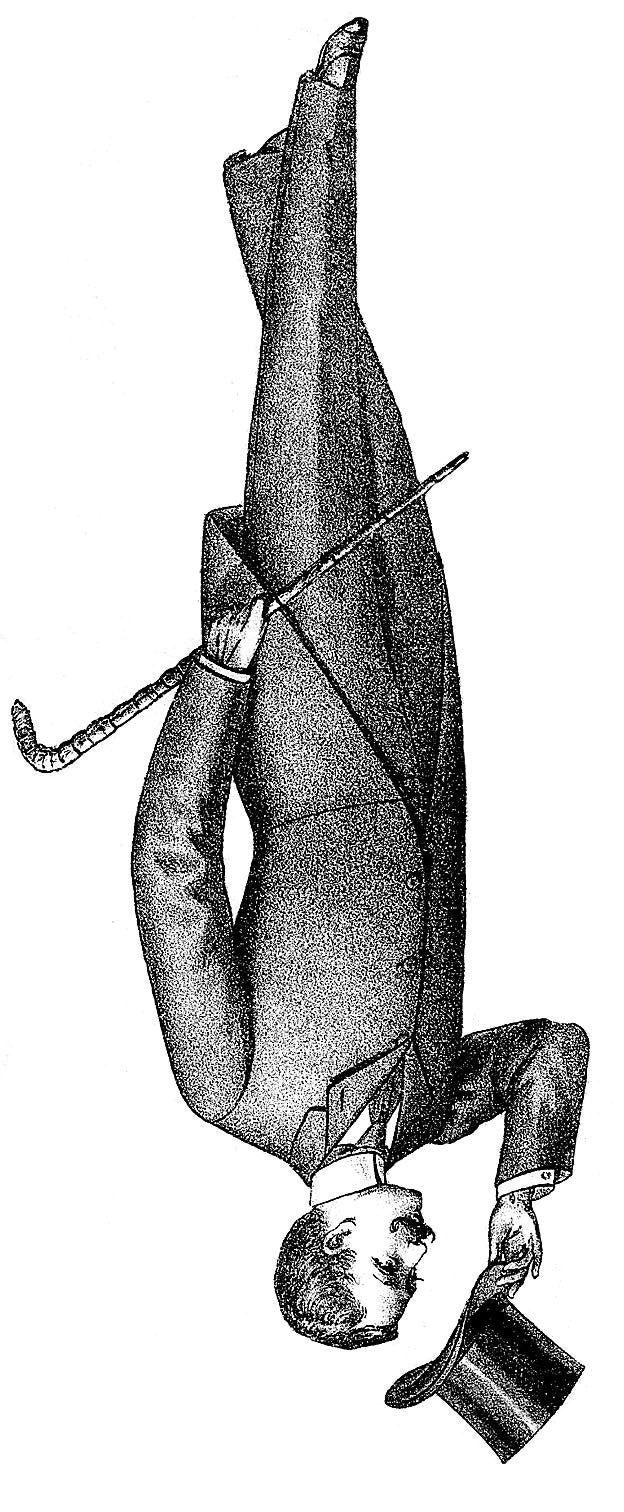Book Review: Soundtracks: The Surprising Solution to Overthinking by Jon Acuff
I took the 30 day challenge so you don’t have to!
Soundtracks: The Surprising Solution to Overthinking by Jon Acuff. Narrated by Jon Acuff. Recorded Books, Inc. 2021. 5 hours (approx.).
Introduction
Jon Acuff is a best selling author and motivational speaker. He is one of INC’s “Top 100 Leadership Speakers” and has given key note addresses for major companies like FedEx, Microsoft and Nokia. His latest book is Soundtracks: The Surprising Solution to Overthinking.
I do not like self help books; I am too inverted for them. However, they are short and are quickly read while I wait for my library holds to come in. Also, I have an overthinking problem so Acuff’s book especially appealed to me.
I have divided this review into two sections: Acuff’s solution to overthinking and my attempt at his 30 day challenge.
Acuff’s Solution to Overthinking
Some memories or thoughts occur involuntarily and when they do they are almost always negative. That is because your brain, according to Acuff, lies to you about your memories and confuses real traumas with fake ones. It also wants to believe what it already believes (i.e., confirmation bias).
Acuff calls these negative and involuntary thoughts “broken soundtracks.” Just like a movie soundtrack sets the mood for a scene, these soundtracks set the mood for your day. A broken soundtrack makes for a bad day. Some examples of broken soundtracks are:
Entitlement (e.g., “This job is beneath me”).
Regret (“My last job was better”).
Fear (“The economy will collapse”).
Blame (“It’s not my fault; it’s yours”).
Resignation (“Things won’t get better”).
Acuff’s “surprising” solution is to identify, “retire” and replace broken soundtracks with positive ones.
To identify a broken soundtrack he suggests asking these three questions: is it true? Is it helpful? Is it kind? If the answer is “no” for even one of these questions you have a broken soundtrack.
Broken soundtracks can’t be retired entirely, says Acuff. They can only be “turned down.” Acuff shares five of his personal turn down techniques. He will go for a run or build Lego sets. He makes to-do lists and finishes small tasks to build up momentum. Finally, he may reach out to a friend to discuss the problem. He then offers an additional 50 turn down techniques. A few examples include taking a short drive, getting coffee, cleaning out the junk drawer, walking the dog, knitting, napping, reading, meditating and working out at the gym.
To replace a broken soundtrack Acuff suggests borrowing soundtracks from someone else. Acuff himself borrowed one from Dorothy Parker, “Creativity is a wild mind and a disciplined eye.” He used this method to gather as many possible soundtracks (wild mind) and then kept only the best ones (disciplined eye). Again, he shares a few examples of positive soundtracks: “People are trying to give me money”; “I’ll feel awesome afterward”; “Spare change adds up”; “Return on investment, not on ego”; and “Pivot, don’t panic.”
Once you have a litany of positive soundtracks you must make them permanent and automatic. One way to achieve this is to repeat the soundtracks everyday. Another way is to build a symbol around one or more of your new soundtracks. The symbol must be simple, personal and readily visible, says Acuff. Examples include an acorn, an item of clothing, a microphone, a favorite photo, a framed quote, Christmas lights strung about your desk or a plant.
Acuff conducted a study that asked 10,000 people to participate in his 30 day challenge. The challenge consisted of repeating his “New Anthem” twice a day for 30 days. Meanwhile, participants would work toward a goal - any goal they wanted. This study was designed to answer three questions:
Does repeating positive affirmations help decrease overthinking?
Does decreasing overthinking help increase productivity?
Does decreasing overthinking help raise success rates for goals?
According to Acuff the answers are:
Repeating the anthem made participants 250% more likely to report reduced overthinking as opposed to an increase or staying the same. Those who repeated it 20 or more times were 46% more likely to decrease overthinking than those who said it 5 or fewer times.
Participants who repeated the anthem 20 or more times during the 30 day period reported being more productive than those who only said the anthem 10 or fewer times.
The participants who reported a decrease in overthinking completed 78% more of their goal, and were four times more likely to “reach or almost reach” their goal.
In conclusion, “Repeating the new anthem helped reduce overthinking and self doubt, it increased satisfaction and productivity, and finally it encouraged people to work nine more days on their goals than their peers did,” says Acuff.
The 30 Day Challenge
Acuff’s “New Anthem'' is available on his website. He invites readers to try his 30 day challenge. The challenge consists of repeating the “New Anthem” twice a day, morning and night, for 30 days while working toward a goal. He also provides a handy checklist.
The first trouble I met was working the anthem into my groove. Mornings went well. However, my nightly routine is falling asleep on the couch watching reruns of Star Trek. When I woke up I was either too groggy to remember or too tired to care. I missed so many nightly recitals that I opted to start over.
I experimented with where to read the anthem. Acuff says to read it in front of a mirror. That left me with the downstairs bathroom, the upstairs bathroom or the bedroom. For some reason, reading the anthem in either bathroom didn’t work for me. Once I started in the bedroom, however, I fell into a groove, and the challenge went much smoother.
My second problem was deciding on a goal. I had no projects to work on except this newsletter, which I was already hammering on everyday for the last 11 months. I settled on, “write more fiction.” My success is debatable. While I failed to write new fiction, I overhauled “The Left Hand of Fomalhaut,” but I had already planned to do that before its publication in this newsletter (read it here).
I have not noticed a reduction in overthinking, but I have noticed the positive affirmations in Acuff’s “New Anthem” coming to mind spontaneously. I particularly like “I have a gift worth giving,” and “The only person standing in my way is me, and I quit doing that yesterday.” I find these phrases coming to mind during moments of doubt, and they’ve helped.
Another affirmation I like is “I’ve packed honesty, generosity, laughter and bravery for the road ahead.” This one also comes to mind, particularly “generosity” in moments of frustration with others.
Finally, reciting at night, “What a day! And the best part is I left myself a lot of fun things to work on tomorrow,” made me eager to write my newsletter the next morning.
A part I did not care much for is, “Watch out world! It’s time to step up, step out and step in.” I don’t know what that means.
Conclusion
This leaves us with the big question: did the challenge work?
Sort of.
On the positive side, some of Acuff’s affirmations are useful and reciting them twice a day for 30 days made those affirmations stick in my mind. On the negative side, some affirmations are meaningless. As for reaching my goal to “write more fiction,” it is hard to say for the reasons I mentioned above.
It is possible that I didn’t follow the guidelines closely enough. For one thing, I stopped using the checklist after day three or four. I also didn’t have a properly formulated goal. Some other things I might have done but did not are: use Acuff’s turn down techniques, seek out other affirmations beyond those Acuff suggested and build a symbol around an affirmation.
In my experience, self help books are hit or miss. One may have good advice, another may not. It varies by person as well. What I find useful you, gentle reader, may find useless. For this reason I am hesitant to say they are a waste of time. It just maybe that Jon Acuff has found the missing piece to your puzzle.




